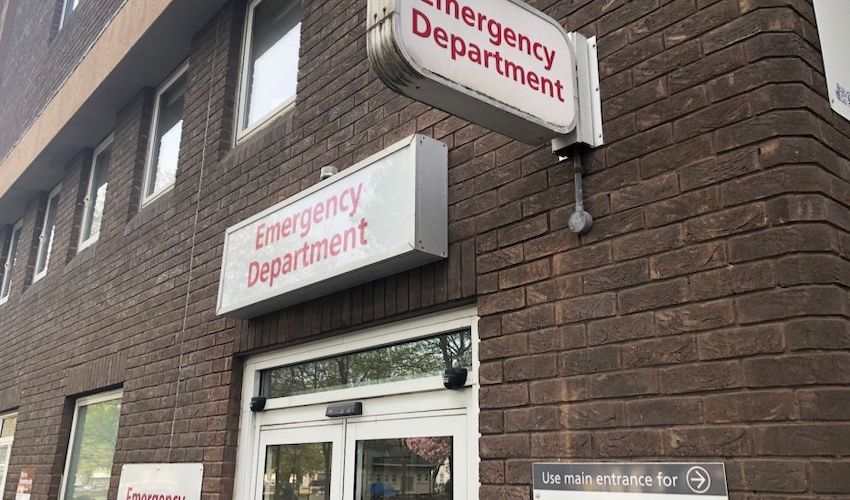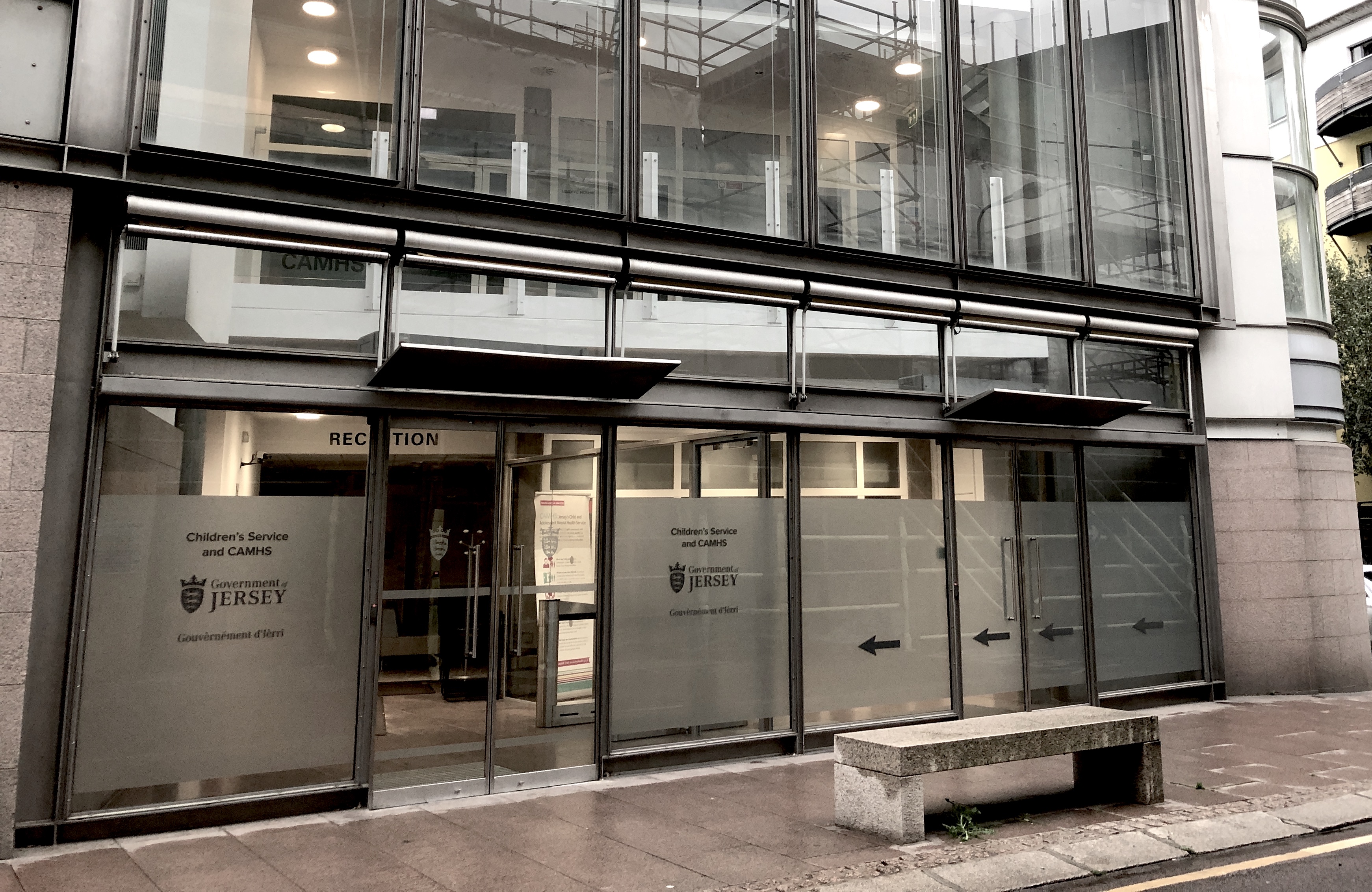


A lack of dedicated inpatient unit for children and inconsistent staff training leaving some feeling that they are not “treated with dignity and respect” are among the ways children’s mental health services are still falling short.
The findings came following an inspection of Child and Adolescent Mental Health Services (CAMHS) by the Jersey Care Commission.
In a report published yesterday, the Commission said that there had been "many changes and improvements" over the past three years, but outlined 12 key areas where improvements were still needed.
Their recommendations included introducing self-referrals, improving data collection, providing interim resources for those on long wait lists, and clarifying governance arrangements. It was also suggested that CAMHS could treat young people up to the age of 25, instead of 18.
Express took a closer look at the report...
The report found that referrers found it "challenging" when CAMHS turns away referrals of young people who are 17-and-a-half-years old.
It was suggested that the service could be improved with the "flexibility" of taking young people up to the age of 25.
One partner agency interviewed during the inspection raised concerns that there is a cut-off at the hospital for young people over 17 years old who attend the emergency department with a mental health emergency.

Pictured: Young people over 16 who attend A&E with a mental health emergency are seen by adult mental health service staff, who may not have CAMHS training or experience.
This means that 17- or 18-year-olds in this situation will be seen by the adult mental health services, who don't necessarily have any CAMHS training or experience.
The partner agency explained that an 18-year-old is "still vulnerable" and thinks that CAMHS should see them at the emergency department.
They also suggested that the service should provide help for young people up to the age of 25.
The Care Commission praised the duty and assessment team for reducing its waiting times for assessments, but noted that data on wait times was not provided to the review team.
The report concluded that "clinical outcome data is not currently employed to enhance the service".

Pictured: The report recommended that data on wait times should be collected.
The inspection "identified the need for improvement in data collection", and recommended that "data systems should be enhanced to better support the improvement of understanding waiting times for treatment and outcomes".
The Care Commission raised concerns that young people cannot currently make a self-referral to the service.
The report suggested that a self-referral process "would be a beneficial approach to motivate individuals to actively seek support from the services".

Pictured: CAMHS confirmed that there are plans to introduce a process for self-referrals on a new website which is due to go live in early 2024.
"It is recommended to establish a system for those individuals that wish to access the service independently," the report said.
CAMHS confirmed that there are plans to introduce a process for self-referrals on a new website which is due to go live in early 2024.
The report described a "rapid uptake" in referrals to the new neuro-developmental service, which has "made it the area of the service that is under the most pressure".
This new service deals with possible neuro-developmental, disorders such as Autism Spectrum Disorders (ASD) and Attention Deficit Hyperactivity Disorder (ADHD), and received 658 referrals between 1 January and 18 October 2023.
Because of this, CAMHS has hired an additional locum psychiatrist, especially for this team.

Pictured: The new neuro-developmental service received 658 referrals between 1 January and 18 October 2023.
However, the young people and parents/carers interviewed as part of the inspection commented that waiting times for ADHD assessments can be long – with many waiting for "six to nine months with no interim offer or resources offered to families".
It was suggested that those young people who are awaiting an ADHD assessment would benefit from a guide and self-help while they wait.
The reviewers also "felt that information around who can help while the young person is waiting for an appointment is not clear", and recommended that patients awaiting assessment after being referred to the service should receive written communication.
The Care Commission suggested that "this communication should encompass details like the professional's name and title, an overview of the assessment process, guidance on reaching out to the team for queries, and information on whom to contact in case of a crisis".
The Care Commission noted that "historically, the Jersey CAMHS service has faced challenges around its public reputation in the community whilst being underfunded and understaffed".
However, in the past three years, the team has expanded from a staff team of 17 to 70.9 full-time equivalents.
"Increased funding has enabled the staff team to grow, with plans to hire a new family support worker and business support lead in the coming year," the report said.
However, the Care Commission identified "inconsistencies" in staff training.
The report said: "During the young person interviews, they expressed that sometimes they don't feel treated with dignity and respect by some staff, and some of the interventions 'made it worse'.
"One referrer advised that some of the students they worked with had commented that some staff were not always very empathetic and felt they were being told off in some instances."

Pictured: The report identified some "inconsistencies" in staff training.
The Care Commission recommended that "the CAMHS team should consider either reminding the staff or offering training sessions focused on delivering therapies with an empathetic approach".
However, the review team described it as "great" that CAMHS is developing training for all staff in recognising and communicating with young people with cognitive impairment or learning disabilities, and aim to deliver it by early summer 2024.
The report described the lack of CAMHS in-patient unit in Jersey as a "challenge", but explained that CAMHS has established relationships with hospital paediatric ward staff for short admissions.
In the last two years, the team has referred a small number of young people to inpatient units in the UK, including young people with an eating disorder.

Pictured: The lack of a CAMHS in-patient unit in Jersey was described in the report as a "challenge".
Some young people may also be managed on the adult inpatient provision in Jersey for a short admission.
However, the review team found that "the use of this provision has reduced in recent years, thanks to the increased investment in CAMHS".
The report explained that although there were initially plans for a designated ward for young people mental health treatment within the new hospital design, plans have now changed to incorporate a multi–site facility and the CAMHS team are awaiting details of the new design proposal.
For the time being, the current CAMHS based at Liberte House on La Motte Street has "received mixed feedback" from young people, parents/carers, and staff.
Concerns were raised around the balcony area, which is situated on the first floor and provides an elevated view of the floor below.
The report found that "this is seen as a risk by service users and family members".

Pictured: CAMHS reported that they are exploring alternative spaces for relocation for 2026 when their current building contract expires.
"Other comments were that natural light was absent, and more office space was needed for staff," the Care Commission added.
However, CAMHS reported that they are exploring alternative spaces for relocation for 2026 when their current building contract expires.
The Care Commission also raised concerns over the fact that only CAMHS clinicians are authorised to prescribe medication for service users.
This has “a considerable impact on the capacity and workload of the clinicians responsible for prescribing”, according to the report.
The Jersey Care Commission found that “this model is not sustainable, and collaboration with local GP services is necessary to share the responsibility of prescribing”.

Pictured: The report raised concerns over the fact that only CAMHS clinicians are authorised to prescribe medication for service users.
However, CAMHS said that “this is not an improvement area CAMHS can control the delivery of”, as the prescribing of controlled medication is a “law issue” in Jersey.
CAMHS explained that any change in prescribing would require Pharmaceutical Benefits Advisory Committee and later Minister for Social Security approval to add medication to the approved whitelist on the Health Insurance Fund.
It would also require development of shared care guidelines, as well as GP agreement and funding.
The report raised concerns about the lack of clear governance arrangements for CAMHS, which is jointly overseen by Health and Community Services (HCS) and the Children, Young People, Education and Skills Department (CYPES).
The review team recognised a need "for a formalised oversight, scrutiny, and governance agreement to be put in place".
Although CAMHS currently has a Memorandum of Understanding (MOU) in place, the report found that this "has not been agreed and ratified for this governance arrangement".
This is necessary "to ensure shared responsibility for safe and high-quality service delivery", the report said.

Pictured: CAMHS confirmed that the existing MOU is currently being updated by the Director of Adult Mental Health, Andy Weir.
CAMHS confirmed that the existing MOU is currently being updated by the Director of Adult Mental Health, which will be completed and ratified within six months.
The lack of clarity regarding governance of CAMHS was also raised at a meeting of the Health and Community Services Advisory Board in December 2023.
Board members agreed that it was "unusual" that CAMHS was positioned outside HCS, and there was concerns that lack of clear governance meant that accountability and responsibility for implementing and monitoring any CAMHS recommendations was unclear.
The Board concluded that the lack of clarity regarding clinical governance arrangements CAMHS was to be discussed at an additional meeting outside of the Board.
The full report can be found online HERE.
Students claim mental health provision is "ridiculous"
Urgent calls to stop sending children to adult mental health ward
Why does a Jersey-born child have to be sent away?
20% spike in cases forces 6 'minors' into adult mental health unit
How 'OneGov' confused children's mental health leadership
Report exposes growing crisis in children's mental health care
Comments
Comments on this story express the views of the commentator only, not Bailiwick Publishing. We are unable to guarantee the accuracy of any of those comments.